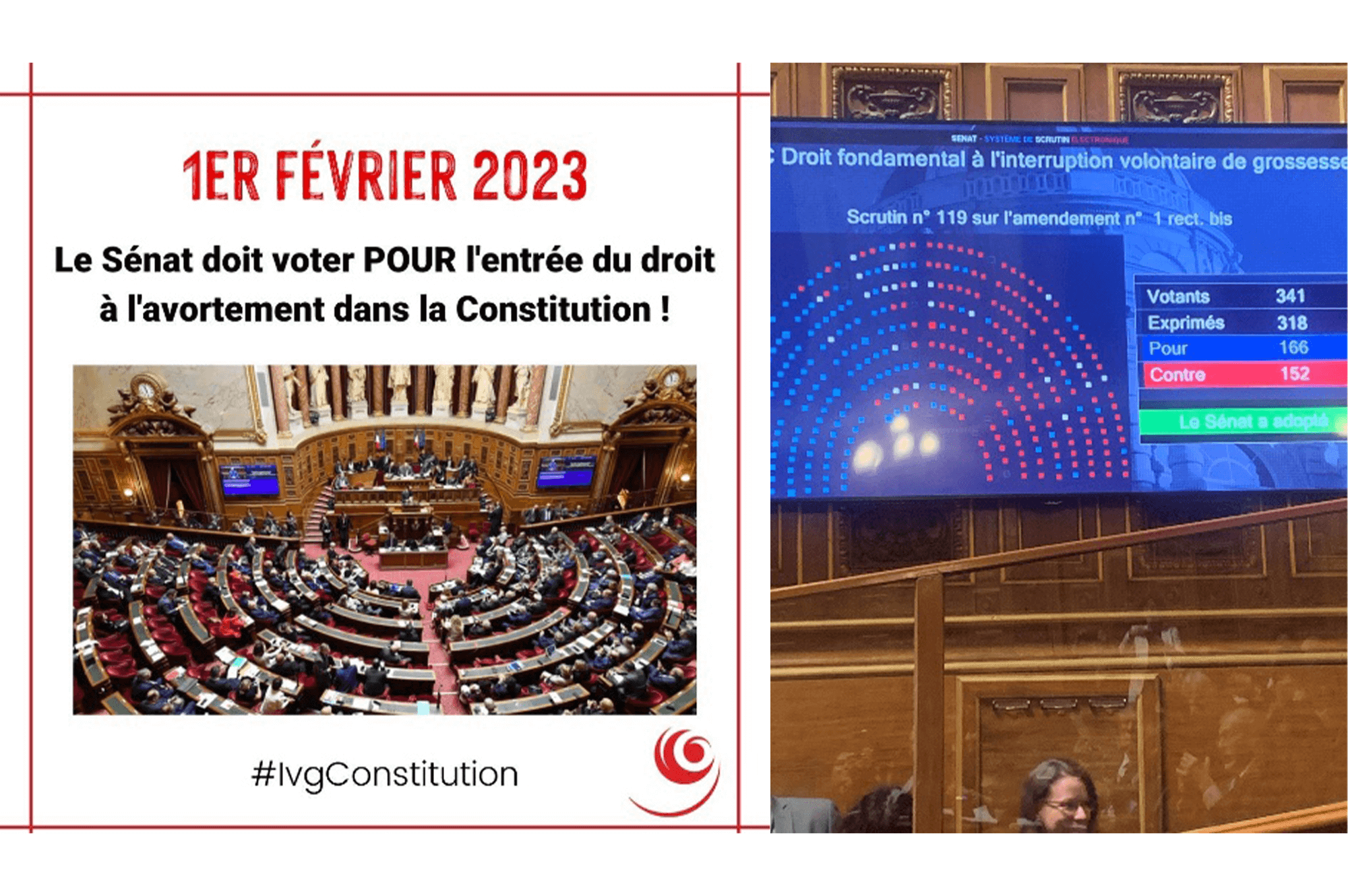
Senate votes to include “freedom of abortion” in the Constitution
STOP PRESS!
At 5pm on 1 February 2023, the Senate, the upper house of the French parliament, began debating a bill to include the right to abortion in the constitution of France. The bill was passed on 24 November 2022 in the Assembly, the lower house of the parliament, by a large majority, 337 to 32. However, there was much more controversy in the Senate, so it was not clear whether the bill would pass there or not. What happened in the Senate was that the text of the bill was amended to read something like “freedom to have an abortion” instead of “right to abortion”. The bill was then passed. This means the bill has to go back to the Assembly to approve the revised wording or again propose new wording. This is seen as a good outcome by a French colleague, in that it keeps the possibility of a good outcome alive. [More next week!!]
SOURCE: Véronique Sehier, MFPF, E-mails 1-2 February 2023
+++
French women’s experiences of in-country vs. cross-border abortion travel
by Laura Rahm, Silvia De Zordo, Joanna Mishtal, Giulia Zanini, Camille Garnsey, Derek Clougher, Caitlin Gerdts
BMJ Sexual and Reproductive Health, 23 January 2023 (Not open access)
Abstract
Objectives – This is the first study contrasting the experience of women residing in France and travelling for abortion services inside and outside their country of residence. We compare travel reasons and costs as well as our study participants’ opinions of abortion legislation. The article documents legal and procedural barriers related to accessing local and timely abortions and provides policy recommendations to broaden care options.
Methods – The study is based on a mixed-methods research design. Quantitative data were descriptively analysed using Stata and drawn from 100 surveys with in-country abortion seekers collected from 3 Parisian hospitals, and 57 surveys with French residents seeking abortion care in the Netherlands (42), Spain (10) and the UK (5). Qualitative data were thematically analysed using ATLAS.ti and drawn from 36 interviews with French residents (23 in-country abortion seekers and 13 cross-border abortion travellers).
Findings – Gestational age limits were the key reason for cross-border travel, while lack of close-by, timely and good quality abortion care was the main driver for in-country abortion travel. Unlike in-country travellers, cross-border abortion seekers faced significant financial costs and burdens related to such travel. Partners, family members and service providers offered important support structures to both cross-border and in-country travellers.
Conclusions – Legal time limits appeared to be the key driver for abortion-related travel of French residents. Having passed or being at risk of exceeding the gestational age limit caused women to travel outside their country or department of residence for abortion care.



